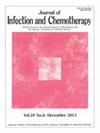爱尔兰国家OPAT方案:十年的数据和见解。
IF 1.5
4区 医学
Q3 INFECTIOUS DISEASES
引用次数: 0
摘要
这项研究提出了一个全面的分析十年的数据从爱尔兰国家门诊肠道外抗菌治疗(OPAT)登记处。爱尔兰OPAT项目于2013年启动,是一个集中模式,收集所有转到国家OPAT项目的数据。来自39家机构的数据显示,OPAT发作17558次,涉及12725名独特患者,使用率稳步上升,直到2021-2022年由于COVID-19大流行而下降。大多数护理是通过卫生专业人员管理的OPAT (H-OPAT)提供的,通过自我管理的OPAT (S-OPAT)提供的比例较小,但不断增加。主要发现包括患者的中位年龄为59岁,中位治疗持续时间为19.2天,不同医院的治疗持续时间和病情使用情况存在显著差异。头孢曲松成为最常用的抗菌药。登记处强调了该计划对节省卧床日的影响,在过去十年中共节省了292,825天。观察到治疗实践的差异,指出需要对抗菌药物管理和治疗方案进行持续评估。该研究强调了国家登记处在监测和改进OPAT服务方面的重要性,并呼吁整合微生物数据以加强管理。未来的方向包括适应新出现的证据,在某些情况下口服治疗优于肠外治疗,以及如何管理这些复杂的患者并将其纳入OPAT结构。本文章由计算机程序翻译,如有差异,请以英文原文为准。
The Irish national OPAT programme: A decade of data and insights
This study presents a comprehensive analysis of ten years of data from the Irish National Outpatient Parenteral Antimicrobial Therapy (OPAT) registry. Initiated in 2013, the Irish OPAT programme is a centralised model which collates data from all referrals to the National OPAT programme. Data from 39 institutions revealed 17,558 OPAT episodes, involving 12,725 unique patients, with a steady increase in usage until a decline in 2021–2022 attributed to the COVID-19 pandemic. The majority of care was delivered through health professional administered OPAT (H-OPAT), with a smaller but increasing proportion via self-administered OPAT (S-OPAT). Key findings include a median patient age of 59, a median treatment duration of 19.2 days, and significant variation noted in treatment durations and condition usage across hospitals. Ceftriaxone emerged as the most prescribed antimicrobial. The registry highlighted the programme's impact on bed day savings, with a total of 292,825 days saved over the decade. Variances in treatment practices were observed, pointing to the need for ongoing evaluation of antimicrobial stewardship and treatment protocols. The study underscores the importance of national registries in monitoring and improving OPAT services and calls for integration of microbiological data to enhance stewardship. Future directions include adapting to emerging evidence favouring oral over parenteral therapy for certain conditions, and how these complex patients can be managed and integrated within an OPAT structure.
求助全文
通过发布文献求助,成功后即可免费获取论文全文。
去求助
来源期刊

Journal of Infection and Chemotherapy
INFECTIOUS DISEASES-PHARMACOLOGY & PHARMACY
CiteScore
4.10
自引率
4.50%
发文量
303
审稿时长
47 days
期刊介绍:
The Journal of Infection and Chemotherapy (JIC) — official journal of the Japanese Society of Chemotherapy and The Japanese Association for Infectious Diseases — welcomes original papers, laboratory or clinical, as well as case reports, notes, committee reports, surveillance and guidelines from all parts of the world on all aspects of chemotherapy, covering the pathogenesis, diagnosis, treatment, and control of infection, including treatment with anticancer drugs. Experimental studies on animal models and pharmacokinetics, and reports on epidemiology and clinical trials are particularly welcome.
 求助内容:
求助内容: 应助结果提醒方式:
应助结果提醒方式:


